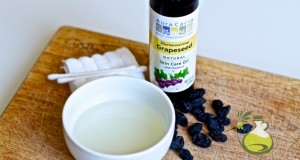As the American Heart Association recommends, the consuming of saturated fats should be significantly reduced. All healthy fats are of unsaturated group and their sources are nuts, seeds and fish. One of such sources has unfairly lost its popularity nowadays. It is sunflower oil, which is good for you due to its balanced nutritional value and fat formula.

The U.S. Department of Health and Human Services marked the oil as a nutrient-dense food (Dietary Guidelines, 2010). Those who follow overall balanced diet should definitely know what the health benefits of sunflower oil are.
Sunflower oil versions
The National Sunflower Association names three types of sunflower oil depending on their oleic levels:
- high linoleic;
- high oleic (no less than 82% oleic acid);
- mid oleic or NuSun (no less than 69% oleic acid).
The third type was developed by the National Sunflower Association. The main benefit of this sunflower oil is that it is highly stable to oxidation without hydrogenation. Hydrogenated fats contain trans fat which are very unhealthy. Such property makes NuSun oil an ideal choice for commercial uses. Still NuSun sunflower oil has maintained the original taste, performance and health benefits of traditional sunflower oil.
The beneficial content of sunflower oil
No matter what type sunflower oil is healthy due to its richness in Vitamin E and unsaturated fatty acids.
In fact, sunflower oil contains more Vitamin E than most of other vegetable oils (even olive, soybean and canola) or nuts. Being a strong fat-soluble antioxidant Vitamin E protects cells from the damaging effect of free radicals. It helps prevent a row of diseases including some forms of cancer, heart diseases, rheumatoid arthritis and asthma.
Vitamin E is also beneficial for skin as it forms a protective barrier that keeps moisture inside the skin and does not let skin infections develop. So sunflower oil is good for you as a compound in cosmetic products.
Sunflower oil is high mostly in linoleic fatty acid from Omega-6 group. According to the Linus Pauling Institute, it is the essential part of a healthy diet, but in order to improve your ratio the consumption of it should stay moderate. Journal of the American Dietetic Association published a study in 2005. It proved that sunflower oil benefits included the lowering of “bad” LDL cholesterol level. Healthy cholesterol level helps reduce the risk of cardiovascular problems.
Sunflower oil is 100% fat. The U.S. Department of Health and Human Services recommends consuming 44 to 78 g fat per day on a 2,000-calory diet to keep the healthy weight and get the needed nutrients (Dietary Guidelines, 2010).
The benefits of sunflower oil come from its phytochemicals as well. They are not considered nutrients, but influence in a health-boosting way. These phytochemicals are lignin, pheolic acid, betaine, choline and arginine. They can help prevent prostate, breast and colon cancer. Folic acid of the oil helps the body produce new cells. The presence of lecithin is good for the regulation of cholesterol level, as lecithin sticks to nerve and cell linings and does not let “bad” LDL cholesterol stay inside cells
 Oilypedia.com – Benefits And Uses Of Supplemental and Essential Oils
Oilypedia.com – Benefits And Uses Of Supplemental and Essential Oils 


